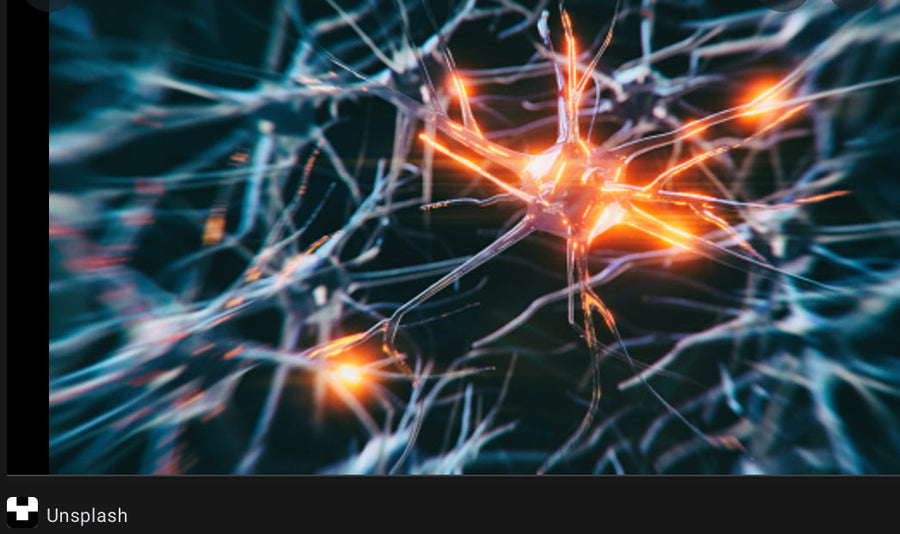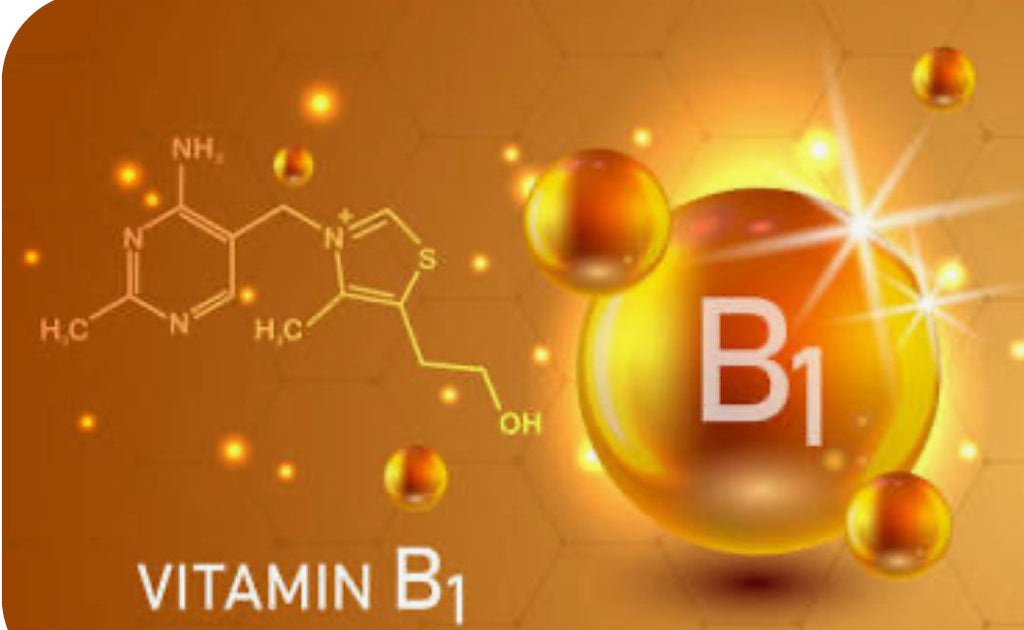Can HP-EVOO Grow New Neurons? - Blog # 61

Hello everyone! Welcome back to another Friday blog. Today I wanted to talk about our neurological health. Why? The prevalence of Parkinson’s, Alzheimer’s, as well as other dementias, is rising at an alarming rate in the U.S. - and worldwide. Non-communicable diseases such as neurodegenerative diseases, cardiovascular, obesity, T2D and cancer account for nearly 70% of all deaths worldwide.
Research now tells us that even before the first time we say ‘where did I leave my keys’ or ‘why did I come in here,’ roughly 20 years of damage has been done to the brain. I don’t know about you, but I want to do everything I can to prevent and reverse this damage! So what is driving this? “Neurodegenerative diseases are driven by several mechanisms such as inflammation, abnormal protein aggregation, excitotoxicity, mitochondrial dysfunction and oxidative stress.”
Let’s take a look at the most recent data:
Parkinson’s: resting hand tremor, constipation, loss of smell, small handwriting, difficulty sleeping, difficulty to slow moving/walking/talking, mask-face, drooling, dizziness, stooping.
- Nearly one million people in the U.S. are living with Parkinson's disease (PD), which is more than the combined number of people diagnosed with multiple sclerosis, muscular dystrophy and Lou Gehrig's disease (or Amyotrophic Lateral Sclerosis). This is expected to rise to 1.2 million by 2030.
- Approximately 60,000 Americans are diagnosed with PD each year.
- More than 10 million people worldwide are living with PD.
- Incidence of Parkinson’s disease increases with age, but an estimated four percent of people with PD are diagnosed before age 50.
- Men are 1.5 times more likely to have Parkinson's disease than women.
Alzheimer’s: now being termed “type 3 diabetes” of the brain - and other related dementias- affecting thought, memory, language, metabolic issues- insulin resistance. Check out blog # 42 on Alzheimer’s.
- In 2020, as many as 5.8 million Americans were living with Alzheimer’s disease.
- Younger people may get Alzheimer’s disease, but it is less common.
- The number of people living with the disease doubles every 5 years beyond age 65.
- This number is projected to nearly triple to 14 million people by 2060.
- Symptoms of the disease can first appear after age 60, and the risk increases with age.
So, what’s really going on with our neurological system? There is a system in the gut called the enteric nervous system. It has been called the 2nd brain. Did you know there are more neurotransmitters (neural communication molecules) in your gut than in your brain? What??? Bacteria both produce and consume a wide range of neurotransmitters such as dopamine, norepinephrine, serotonin and gamma-aminobutyric acid (GABA). “Accumulating evidence in animals suggests that manipulation of these neurotransmitters by bacteria may have an impact in host physiology, and preliminary human studies are showing that microbiota-based interventions can also alter neurotransmitter levels.”
There is an elaborate communication system of ‘instant messages’ happening just under our radar. Have you ever just had a “gut” feeling you shouldn’t do something or felt something bad would happen? You’ve heard the saying ‘listen to your gut.’ This is REAL! The trillions of microbes in your microbiome are actually listening to your thoughts. They’ve been doing it a lot longer than Alexa 🤣!!!
When you think negative thoughts, the microbiome reacts by making more harmful chemicals that cause damage, such as propionic acid, a short-chain fatty acid that is neurotoxic and contributes to Autism. When you think positive thoughts, your microbiome produces healing chemicals, such as vitamins, antioxidants, beneficial short-chain fatty acids like butyrate that help prevent cancer. “Brain neurotransmitter modulation by gut microbiota is indispensable to the physiopathology of anxiety and depression.” Did you know that nearly 50% of the metabolites in our blood are post-biotic metabolites, produced by our microbiome? They are constantly communicating with the brain. This is quite profound.


What about their food? There are roughly 100 trillion microbes waiting. Do you ever choose foods specifically to feed your gut? They like polyphenols found in EVOO and brightly colored vegetables, resistant starch and indigestible fiber! If you are eating a nutrient-deficient diet high in processed foods and sugars your gut will make bad metabolites. To make matters worse, we destroy our microbiome with glyphosate (roundup) and other antibiotics, pesticides and herbicides. How does this affect you? You feel more tired, more irritable, more anxious, get sick more easily, are less able to manage stress from relationships, work or even drive. You may have a knot in your stomach and can’t quite figure out why. We can’t see our red and inflamed insides like we can a cut on our finger. It is incredibly important to feed our microbiota the right food and positive thoughts!
Think about the use of massive amounts of antibiotics - both in the animals we consume and that we take for everything - even when it is viral! Not to mention food additives, emulsifiers (carrageenan) and chemicals (microbial transglutaminase), toxins, stress, antacids, medications, NSAIDs like Ibuprofen, Aleve and Aspirin that have a profound change in the balance of our microbiome. Nearly every known non-communicable disease has a relationship to the microbiome, such as T2D (type 2 diabetes), heart disease, cancer, obesity, IBS, autoimmune disease, Alzheimer’s and Parkinson’s! There is quite a large body of evidence and recent data showing this. But, who is paying attention? If you went to your MD with one of these issues, would she/he look at your gut microbiome? Likely not. This is unfortunate. Understand that it takes 17-20 years for current research to be put into medical practice. We all need to be advocates for our own health!!! I can’t express this enough.
It is now well documented that there’s a common thread linked to gut-health - that is often missed by most physicians when it comes to neurological wellbeing. “Patients with various psychiatric disorders including depression, bipolar disorder, schizophrenia, and autism spectrum disorder have been shown to have significant differences in the composition of their gut microbiome. Enhancing beneficial bacteria in the gut, for example, through the use of probiotics, prebiotics, or dietary change, has the potential to improve mood and reduce anxiety in both healthy people and patient groups.” The next 3 studies highlight a more aggressive, but successful strategy, fecal microbiota transplant (FMT).
A study from Frontiers In Cellular and Infection Microbiology, Oct. 2021 looked at FMT (fecal microbiota transplant) from healthy children to ASD (Autism Spectrum Disorder) children. Researchers stated, “our work proved that FMT was well tolerated and effective in improving gastrointestinal symptoms and autism-like behaviors in children with ASD. FMT seemed to induce the production of a microbiota that was significantly different from the pre-FMT microbiota and much more similar to those of the healthy donor and typically developing children.” This is a great example of how important the health of our microbiome is to our own health!!!
Another recent study in August 2020, did FMT in individuals with PD (Parkinson’s Disease). They reported good results lasting > 24 months in some. “We conclude that FMT can relieve the motor and non-motor symptoms with acceptable safety in PD.”
A recent (10/2021) case report was on a 90 year-old Alzheimer’s patient who underwent FMT with resulting improved cognitive function. “FMT changed the microbiota composition in recipient feces. We found that the genera were reported to be associated with cognitive function. In addition, short-chain fatty acids were found to be significantly different between before and after FMT. This finding suggests the presence of an association between the gut microbiome and cognitive function. Further, it emphasizes the need for clinical awareness regarding the effect of FMT on the brain-gut-microbiome axis and its potential as a therapy for patients with dementia.”
Okay, FMT may sound horrible and a drastic measure - but if you are suffering, it could help immensely. Also, if you have Parkinson’s, it’s less invasive than surgical brain procedures. For those of us who just forget our keys from time to time, our focus is on healing the body and preventing these neurological diseases. Our brain contains the highest lipid (fat) content in our body, only second to white adipose (fat) tissue. So, fat must be required to prevent and heal damage to our brain and entire neurological system. If you have been following a low-fat diet -that we were all led to believe was the way to go - you are depriving your brain of what it needs to function properly and repair itself.
EVOO (extra-virgin olive oil) contains amazing polyphenols, which we will get into shortly, but primarily the MUFA (mono-unsaturated fatty acid), Oleic Acid. Oleic acid displays a huge role in brain development and function. The brain requires lipids for the correct homeostasis and alterations in lipid metabolism that are linked to neurological diseases. Oleic acid is the only fatty acid synthesized by astrocytes. It also functions as a neurotrophic factor for neurons and has a role in astrocyte-neuron crosstalk! “The synthesized oleic acid promotes axonal and dendrite growth and induces doublecortin expression, resulting in neuron migration. These data confirm the pivotal role of oleic acid in astrocyte-neuron crosstalk and further studies should be performed in order to evaluate the role of oleic acid in neurodegenerative disorders.” This is incredible!! Oleic Acid is sooo important your brain makes it to promote the growth of neurons. By ingesting high-polyphenol EVOO, you enhance your body’s ability to repair and build new neurons.
In addition to the effects of Oleic Acid, polyphenol count is extremely important in your EVOO! I take a big 4T shot of HP-EVOO every morning! The higher polyphenol count the better! Let’s look at a few of the functions of Polyphenols that affect our neurological health:
- Antioxidant - Polyphenols attenuates oxidative stress reducing risk for neurodegenerative diseases. “The biological activity of EVOO polyphenols is strongly correlated to their antioxidant and antiinflammatory properties since they might be able to reduce the pool of reactive oxygen species by acting as chain breakers, radical scavengers, and metal chelators, and to counteract the inflammatory processes associated with the onset and progression of several pathological conditions.” In a recent study comparing the effects of Oleic Acid (monounsaturated FFA) vs Palmitic Acid (saturated FFA), scientists confirmed that one of the most potent inducers of oxidative stress in pancreatic B cells (the cells in the pancreas that produce insulin) is Palmitic acid (a major saturated fat in western diets). Oleic Acid actually REVERSED oxidation of pancreatic B cells in the presence of Palmitic Acid!!!
- Anti-inflammatory - “Olive polyphenols are considered to be responsible for some of the recognized pharmacological properties of the olive tree (anti-atherogenic, antihepatotoxic, hypoglycemic, anti-inflammatory, antitumoral, antiviral, analgesic, purgative and immunomodulatory activities) together with the protection against aging-associated neurodegeneration.”
- Anti-aging - EVOO phenolics, mainly hydroxytyrosol and tyrosol, to activate Nrf-2 signaling, inducing a cellular defense response and to prevent NF-κB activation, thus suppressing the induction of a pro-inflammatory phenotype
- Regulatory - “role in regulating neurotrophin levels, in particular nerve growth factor (NGF) and brain-derived neurotrophic factor (BDNF). NGF and BDNF, primarily known as biological mediators stimulating neuron growth, proliferation, survival and differentiation are recently studied also as metabotrophic factors, acting on glucose and energy metabolism, pancreatic beta cells and cardiovascular homeostasis.”
- Neuro-protective - In a recent study, researchers extracted the polyphenols from EVOO grown in two different regions of Tuscany, Italy, the plains and hill. The different soil composition resulted in a different composition of polyphenols in the EVOO. They compared their ability to protect neurons from peroxide exposure. Hill extract was more effective in protecting certain neuronal cells from peroxide stress and was able to regulate proteins involved in neuronal plasticity and activation of neurotrophic factors such as BDNF (brain-derived neurotrophic factor). The primary difference was the hill oil had a higher polyphenol count in the lignan family. HP-EVOO is full of lignans!
- Selectively antimicrobial - HP-EVOO helps balance our microbiome by supplying polyphenols to the beneficial bacteria, while helping to control the population of the harmful bacteria. Many times we have too many ‘bad guys’ and not enough ‘good guys.’ We may not have the level of infection, but we may be symptomatic. For example, too many Klebsiella contribute to arthritis symptoms. Another example is a polyphenol in EVOO kills H. pylori, the bacterium responsible for stomach ulcers.
Okay, so when it comes to our neurological health, high polyphenol EVOO is a superfood! Check out blog # 51! Here are some other things we can do to protect, repair and maintain the health of our neurological system:
- Sleep - During sleep, the glymphatic system of the the brain goes into a cleaning cycle, similar to your dishwasher’ cycle to remove old cells, bacteria, viruses, heavy metals, toxins and misfolded proteins and amyloid proteins. Studies show adults need 7-9 hours, kids need more! Guard your sleep. Get bright light in your eyes first thing in the am. Turn lights down into the red zone in the evening to enhance melatonin production.
- Meditation - and positive thinking - “research suggests that practicing meditation may reduce blood pressure, symptoms of irritable bowel syndrome, anxiety and depression, and insomnia.” Also, deep and controlled breathing has been shown to be beneficial to calm the neurological system and lower cortisol levels.
- Intellectual stimulation - learn something new, challenge your mind. This literally makes your brain grow and prevents shrinking. However, there is a metabolic cost due to increased neuronal activity with an increased production of amyloid proteins. Sleep clears these!
- Relationships - with family, friends and community. This is of high priority in the blue zones! Improves overall health and quality of life.
- Exercise - Move your body! Sweat to remove toxins and waste. This is the safest detox there is! Being physically active helps to improve memory, fights depression, gives a sense of wellbeing, improves strength, delays brain aging and degenerative pathologies such as T2D, Alzheimer’s, MS, and can even reverse some of the damaging effects of a sedentary lifestyle.
- Omega 3s - These are essential fatty acids that are found in high numbers particularly in the myelin sheath. They speed up neuro-transmissions, protect cell membrane, facilitate communication between neurons, assist in synthesis and function of neurotransmitters, support blood flow in the brain, aids in growth of brain tissue, supports cognition and memory, helps prevent neuropsychiatric and neurodegenerative disorders such as depression and anxiety. The fat in the brain is mostly DHA. Get in wild fatty fish - salmon, sardines, anchovies…
- Vitamin D3 - fat-soluble and acts as a hormone in the body. It plays a role in neuronal development as well as the prevention of brain infections. Deficiency is involved in the “development of dementia caused by the increase of cerebral soluble and insoluble amyloid-β (Aβ) peptides and a decrease of its anti-inflammatory/antioxidant properties, the link to depression by a reduction of the buffering of increased calcium in the brain, and vitamin D deficiency in expecting mothers linking to the development of autism and schizophrenic-like disorders, hypoxic brain injury, and other mental illnesses.” Deficiency is also linked to insulin resistance and the development of T2D. It is also very involved in intestinal health.
- Vitamin B1 - This is the nerve vitamin - intricately involved in the production and protection of myelin around the nerves. It is also a cofactor for 5 mitochondrial enzymes! Highest food source is pork followed by salmon. Nutritional yeast is another great source for B vitamins.
- Pre/Probiotic - Replenish your gut microbiome, particularly if you’ve had antibiotics or aren’t eating organic. Beware, many probiotics on the market are full of dead microbes. It is best to get 3rd party tested for live microbes. Increase your fiber consumption - this is what they like to eat, along with polyphenols. Eat plenty of fermented foods to increase your numbers as well. Sauerkraut, Greek yogurt, kimchi…
- Organic - check out blog # 60 eat the rainbow of veggies and fruits, nuts and seeds, wild-sourced, wild-caught, grass-fed/finished, pastured and free-ranging. This doesn’t guarantee you won’t get glyphosate, but it will be much less than traditionally grown food. Glyphosate chelates (binds to) zinc and magnesium and depletes it from the soil. Better yet, get wild-sourced or grow a garden if possible.
- Stop eating sugar and processed food - there are roughly 100 names for sugar so they don’t have to actually say how much sugar is in a product: Stop putting all these things in your body: High fructose corn syrup, barley malt, agave nectar… refined sugar, pink/blue icing, foods fried in repetitively heated vegetable and seed oils (transfats- all restaurants), GMO and glyphosate-treated foods like wheat, oats, soy, corn, packaged foods with multiple ingredients and have a bar code, meat from confined animals and generally fed a horrible diet. These non-foods or contaminated foods will make you feel horrible without even realizing why you are irritated. I’m convinced this type of diet is a HUGE contributor to mass shootings, road rage and other negative aberrant behaviors. It excites the instinctive or primitive brain, limbic and amygdala - while the higher brain (the adult in the room) frontal lobe is out to lunch.
So, until next time my friends, heal your gut and fix your brain! Drink, Drizzle, Digest HP-EVOO 2-4T daily, eat the rainbow of veggies and fruits organic or wild-sourced, eat wild-caught, pasture-raised, grass-fed, get plenty of sunshine + supplement magnesium, zinc and vitamin D3, get your trace minerals and electrolytes with good sea salt *Himalayan was formed before plastics, eat foods high in lutein, drink 1/2 your body weight in oz of water, get a good pre/probiotic, eat some adaptogens and methylation donors (kale, lion’s mane…) to detox, enhance overall health and reverse aging and disease, exercise your body and mind, add a few minutes of mindful meditation to your day to combat stress, remove EMF (electromagnetic frequency) devices and blue light, use IR (infrared) from candles, fire or incandescent lights in the evening to enhance sleep and...turn off the light!! #HP-EVOO
This blog is intended for informational purposes only. Discuss strategies with your Healthcare Practitioner.







Comments (2)
Julie,
What are your thoughts about Red Light therapy?
Wow! This is so good! I read this and I feel the passion that it takes to do all the research and share this valuable information. Thank you! I love it!